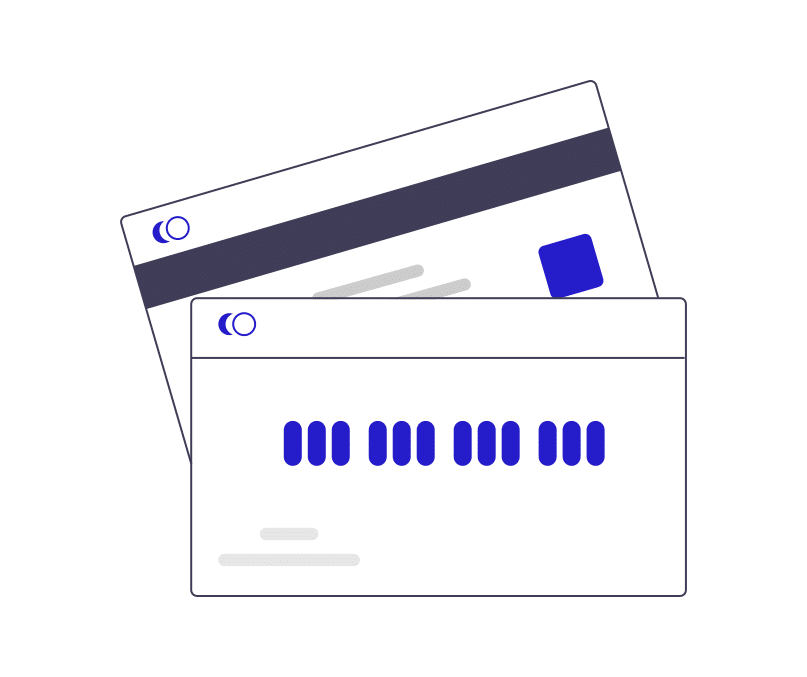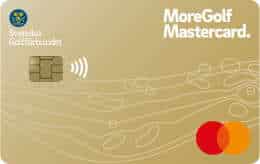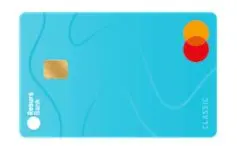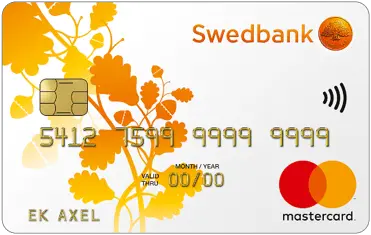Get a Credit Card today
Best Credit Cards in Sweden
Compare types of credit cards
See what perks that fit you
Apply today and get an instant answer
Finding the right credit card in Sweden can be straightforward. Different cards offer unique benefits, whether you’re looking for rewards, low interest rates, or travel perks. Our guide simplifies your choice, helping you match your needs with the ideal card. Let’s dive into the factors that matter most in selecting a Swedish credit card.
The Best Credit Cards in Sweden 2026
Requirements
| Requirements | Details |
|---|---|
| Minimum Age | 20 years |
| Minimum Annual Income | 150,000 SEK |
| Payment Defaults Allowed | None (no payment remarks) |
Quick Facts
| Quick Facts | Details |
|---|---|
| Annual Fee | 0 SEK |
| Maximum Credit Limit | 120,000 SEK |
| Interest Rate | 9.74% – 21.90% |
| Effective Interest Rate | 8.10% – 19.84% |
| Interest-Free Period | Up to 56 days |
| Card Type | Mastercard |
| Cash Withdrawal Fee | 3.00% (min. 35 SEK) |
| Foreign Currency Fee | 2.00% |
| Invoice Fee | 39 SEK (0 SEK with e-invoice) |
| Reminder Fee | 60 SEK |
| Late Payment Fee | 125 SEK |
| Overdraft Fee | 95 SEK |
| Free Additional Card | Yes |
| Google Pay | Yes |
| Apple Pay | Yes |
| Samsung Pay | Yes |
| Payment Holidays | Up to 2 payment-free months per year |
Example: Effective interest rate 18.91% for utilized credit of SEK 30,000 repaid over 1 year (2025-07-01)
Borrowing costs money.
If you are unable to repay your debt on time, you risk getting a payment default. This can make it harder to rent a home, sign contracts, or obtain new loans. For support, contact the municipal budget and debt counselling service. You can find contact information at konsumentverket.se.
Requirements
| Requirements | Details |
|---|---|
| Minimum Age | 18 years |
| Minimum Monthly Income | 1,042 SEK |
| Payment Defaults Allowed | None (no payment remarks) |
Quick Facts
| Quick Facts | Details |
|---|---|
| Annual Fee | 225 SEK |
| Maximum Credit Limit | 100,000 SEK |
| Interest Rate | 16.74% |
| Effective Interest Rate | 14.75% – 19.27% |
| Interest-Free Period | 55 days |
| Card Type | Mastercard |
| Cash Withdrawal Fee | 2.00% (min. 40 SEK) |
| Foreign Currency Fee | 0% |
| Invoice Fee | 29 SEK (0 SEK with e-invoice) |
| Reminder Fee | 60 SEK |
| Late Payment Fee | 100 SEK |
| Overdraft Fee | 125 SEK |
| Google Pay | Yes |
| Apple Pay | Yes |
Example: The effective interest rate is 16.73% when paying with e-invoice (20.37% with paper invoice) for a utilized credit of 20,000 SEK repaid over 1 year (2025-03-08)
Borrowing costs money.
If you are unable to repay your debt on time, you risk getting a payment default. This can make it harder to rent a home, sign contracts, or obtain new loans. For support, contact the municipal budget and debt counselling service. You can find contact information at konsumentverket.se.
Requirements
| Requirements | Details |
|---|---|
| Minimum Age | 18 years |
| Employment Status | Must be employed |
| Payment Defaults Allowed | None (no payment remarks) |
Quick Facts
| Quick Facts | Details |
|---|---|
| Annual Fee | 0 SEK |
| Maximum Credit Limit | 150,000 SEK |
| Interest Rate | 22.00% |
| Effective Interest Rate | 24.36% |
| Interest-Free Period | 45 days |
| Card Type | Visa |
| Cash Withdrawal Fee | 0% |
| Foreign Currency Fee | 1.99% |
| Invoice Fee | 45 SEK (0 SEK with e-invoice) |
| Reminder Fee | 60 SEK |
| Late Payment Fee | 95 SEK |
| Overdraft Fee | 0 SEK |
| Google Pay | Yes |
| Apple Pay | Yes |
| Samsung Pay | Yes |
Example: The credit interest rate is 22.00%. The annual fee is SEK 0. When using a credit of SEK 10,000 with repayment through 12 monthly payments of SEK 936, the effective interest rate is 24.36%. The total amount to be repaid is SEK 11,231. The example is calculated in January 2026 and the interest rate is variable.
Borrowing costs money.
If you are unable to repay your debt on time, you risk getting a payment default. This can make it harder to rent a home, sign contracts, or obtain new loans. For support, contact the municipal budget and debt counselling service. You can find contact information at konsumentverket.se.
| Quick Facts | Details |
|---|---|
| Annual Fee | 0 SEK first year, then 395 SEK annually |
| Maximum Credit Limit | 150,000 SEK |
| Interest Rate | 16.90% |
| Effective Interest Rate | 18.99% |
| Interest-Free Period | 50 days |
| Card Type | Mastercard |
| Cash Withdrawal Fee | 3.00% (min. 35 SEK) |
| Foreign Currency Fee | 1.65% |
| Invoice Fee | 25 SEK (0 SEK with e-invoice) |
| Reminder Fee | 60 SEK |
| Late Payment Fee | 95 SEK |
| Overdraft Fee | 75 SEK |
| Google Pay | Yes |
| Apple Pay | Yes |
| Samsung Pay | Yes |
Example: For a credit amount of SEK 100,000 with a variable annual interest rate of 10.65%, an 8-year term (repayment period), 96 repayments, an arrangement fee of SEK 0 and a notice fee of SEK 10 (when paying by direct debit), the effective interest rate is 11.39%. The regular monthly amount to be paid is SEK 1,562 and the total amount to be paid is SEK 150,852. The example, which is calculated on 2025-05-23, assumes that interest and fees are unchanged throughout the credit period. Rounding is applied to the nearest higher krona. The interest rate is variable and can vary from 6.65% – 17.69%, which means that the effective interest rate can vary from 6.89% – 20.14%. The effective interest rate is calculated in accordance with the Swedish Consumer Agency’s guidelines.
Borrowing costs money.
If you are unable to repay your debt on time, you risk getting a payment default. This can make it harder to rent a home, sign contracts, or obtain new loans. For support, contact the municipal budget and debt counselling service. You can find contact information at konsumentverket.se.
Requirements
| Requirements | Details |
|---|---|
| Minimum Age | 20 years |
| Minimum Monthly Income | 10,417 SEK |
| Payment Defaults Allowed | None (no payment remarks) |
Quick Facts
| Quick Facts | Details |
|---|---|
| Annual Fee | 0 SEK first year, then 295 SEK annually |
| Maximum Credit Limit | 160,000 SEK |
| Interest Rate | 18.24% |
| Effective Interest Rate | 18.91% |
| Interest-Free Period | 55 days |
| Card Type | Mastercard |
| Cash Withdrawal Fee | 3.00% (min. 45 SEK) |
| Foreign Currency Fee | 1.65% |
| Invoice Fee | 35 SEK (0 SEK with e-invoice) |
| Reminder Fee | 60 SEK |
| Late Payment Fee | 115 SEK |
| Overdraft Fee | 105 SEK |
| Google Pay | Yes |
| Apple Pay | Yes |
| Samsung Pay | Yes |
The effective interest rate is 18.91% when paying by e-invoice for a used credit of SEK 20,000 repaid over 1 year (September 2025).
Borrowing costs money.
If you are unable to repay your debt on time, you risk getting a payment default. This can make it harder to rent a home, sign contracts, or obtain new loans. For support, contact the municipal budget and debt counselling service. You can find contact information at konsumentverket.se.
Requirements
| Requirements | Details |
|---|---|
| Minimum Age | 20 years |
| Minimum Monthly Income | 10,000 SEK |
| Payment Defaults Allowed | None (no payment remarks) |
Quick Facts
| Quick Facts | Details |
|---|---|
| Annual Fee | 0 SEK first year, then 195 SEK annually |
| Maximum Credit Limit | 100,000 SEK |
| Interest Rate | 16.90% |
| Effective Interest Rate | 17.73% |
| Interest-Free Period | 50 days |
| Card Type | Visa |
| Cash Withdrawal Fee | 3.00% (min. 35 SEK) |
| Foreign Currency Fee | 1.65% |
| Invoice Fee | 25 SEK (0 SEK with e-invoice) |
| Reminder Fee | 60 SEK |
| Late Payment Fee | 95 SEK |
| Overdraft Fee | 75 SEK |
| Google Pay | Yes |
| Apple Pay | Yes |
| Samsung Pay | Yes |
Example: When paying the total debt, no interest is charged for purchases. If you use the credit, the annual interest rate is 16.9% (variable). The effective interest rate is 17.73% for a used credit of SEK 20,000. The annual fee is SEK 195, but it is free of charge for the first year. With e-invoice or direct debit, there is no administrative fee, while paper invoices or bank statements cost SEK 25/month. Extra cards cost SEK 50/year. Cash withdrawals are charged at 3% (minimum SEK 35), and the currency exchange surcharge is 1.65%. The credit limit is SEK 5,000 to SEK 100,000..
Borrowing costs money.
If you are unable to repay your debt on time, you risk getting a payment default. This can make it harder to rent a home, sign contracts, or obtain new loans. For support, contact the municipal budget and debt counselling service. You can find contact information at konsumentverket.se.
Requirements
| Requirements | Details |
|---|---|
| Minimum Age | 20 years |
| Minimum Monthly Income | 12,500 SEK |
| Payment Defaults Allowed | None (no payment remarks) |
Quick Facts
| Quick Facts | Details |
|---|---|
| Annual Fee | 0 SEK first year, then 295 SEK annually |
| Maximum Credit Limit | 150,000 SEK |
| Interest Rate | 18.80% |
| Effective Interest Rate | 19.45% |
| Interest-Free Period | 55 days |
| Card Type | Mastercard |
| Cash Withdrawal Fee | 1.50% (min. 35 SEK) |
| Foreign Currency Fee | 1.75% |
| Invoice Fee | 29 SEK (0 SEK with e-invoice) |
| Reminder Fee | 60 SEK |
| Late Payment Fee | 100 SEK |
| Overdraft Fee | 105 SEK |
| Free Additional Card | Yes |
| Google Pay | Yes |
| Apple Pay | Yes |
| Samsung Pay | Yes |
Example: The effective interest rate is 19.85% when paying by e-invoice (23.57% with paper invoice) for a utilized credit amount of SEK 20,000, repaid over 1 year (2025-02-01).
Borrowing costs money.
If you are unable to repay your debt on time, you risk getting a payment default. This can make it harder to rent a home, sign contracts, or obtain new loans. For support, contact the municipal budget and debt counselling service. You can find contact information at konsumentverket.se.
Requirements
| Requirements | Details |
|---|---|
| Minimum Age | 18 years |
| Employment Status | Must be employed |
| Payment Defaults Allowed | None (no payment remarks) |
Quick Facts
| Quick Facts | Details |
|---|---|
| Annual Fee | 245 SEK |
| Maximum Credit Limit | 150,000 SEK |
| Interest Rate | 22.37% |
| Effective Interest Rate | 33.67% |
| Interest-Free Period | 60 days |
| Card Type | Mastercard |
| Cash Withdrawal Fee | 2.97% (min. 35 SEK) |
| Foreign Currency Fee | 1.97% |
| Invoice Fee | 39 SEK |
| Reminder Fee | 60 SEK |
| Late Payment Fee | 0 SEK |
| Overdraft Fee | 0 SEK |
| Google Pay | Yes |
| Apple Pay | Yes |
*Example for the installment payment options 6 months interest-free and 20 months installment payment. The examples below are calculated based on purchases made on the first day of the month. We offer several different payment options. 6 months interest-free: Credit 15,000 SEK, 6 installment payments of 2,500 SEK, uppl.avg 97 SEK, adm.avg 39 SEK/month, effective interest 5.35%, incl. annual fee 245 SEK. Total amount: 15,576 SEK. Divide 1/20: Credit 15,000 SEK, uppl.avg 0 SEK, adm.avg 39 SEK/month, credit interest 22.37%, effective interest 30.67%, incl. annual fee 245 SEK. Total amount: 21,005 SEK. The total amount assumes that you pay 1/20 of the debt each month and make the final payment on month 20.
Borrowing costs money.
If you are unable to repay your debt on time, you risk getting a payment default. This can make it harder to rent a home, sign contracts, or obtain new loans. For support, contact the municipal budget and debt counselling service. You can find contact information at konsumentverket.se.
Requirements
| Requirements | Details |
|---|---|
| Minimum Age | 18 years |
| Employment Status | Must be employed |
| Payment Defaults Allowed | None (no payment remarks) |
Quick Facts
| Quick Facts | Details |
|---|---|
| Annual Fee | 0 SEK |
| Maximum Credit Limit | 30,000 SEK |
| Interest Rate | 23.00% |
| Effective Interest Rate | 29.25% |
| Interest-Free Period | 60 days |
| Card Type | Mastercard |
| Cash Withdrawal Fee | 2.97% (min. 35 SEK) |
| Foreign Currency Fee | 1.97% |
| Invoice Fee | 39 SEK |
| Reminder Fee | 60 SEK |
| Late Payment Fee | 145 SEK |
| Overdraft Fee | 145 SEK |
| Google Pay | Yes |
| Apple Pay | Yes |
*Example for the installment payment options 6 months interest-free and 20 months installment payment. The examples below are calculated based on purchases made on the first day of the month. We offer several different payment options. 6 months interest-free: Credit 15,000 SEK, 6 installment payments of 2,500 SEK, upp.avg 97 SEK, adm.avg 39 SEK/month, effective interest 3.85%. Total amount: 15,331 SEK. Divide 1/20: Credit 15,000 SEK, upp.avg 0 SEK, adm.avg 39 SEK/month, credit interest 23%, effective interest 29.25%, incl. annual fee 0 SEK. Total amount: 20,577 SEK. The total amount assumes that you pay 1/20 of the debt each month and make the final payment in month 20.
Borrowing costs money.
If you are unable to repay your debt on time, you risk getting a payment default. This can make it harder to rent a home, sign contracts, or obtain new loans. For support, contact the municipal budget and debt counselling service. You can find contact information at konsumentverket.se.
Requirements
| Requirements | Details |
|---|---|
| Minimum Age | 18 years |
| Minimum Monthly Income | 10,417 SEK |
| Payment Defaults Allowed | None (no payment remarks) |
Quick Facts
| Quick Facts | Details |
|---|---|
| Annual Fee | 0 SEK first year, then 195 SEK annually |
| Maximum Credit Limit | 20,000 SEK |
| Interest Rate | 14.25% |
| Effective Interest Rate | 14.13% |
| Interest-Free Period | 55 days |
| Card Type | Mastercard |
| Cash Withdrawal Fee | 3.00% (min. 45 SEK) |
| Foreign Currency Fee | 1.65% |
| Invoice Fee | 0 SEK |
| Reminder Fee | 60 SEK |
| Late Payment Fee | 100 SEK |
| Overdraft Fee | 105 SEK |
| Free Additional Card | Yes |
| Google Pay | Yes |
| Apple Pay | Yes |
| Samsung Pay | Yes |
*Interest information: Effective interest rate 14.13% for utilized credit of SEK 20,000 repaid over 1 year (2025-02-04). See complete information about price and calculation examples further down the page.
Borrowing costs money.
If you are unable to repay your debt on time, you risk getting a payment default. This can make it harder to rent a home, sign contracts, or obtain new loans. For support, contact the municipal budget and debt counselling service. You can find contact information at konsumentverket.se.

Requirements for Getting a Credit Card in Sweden
Securing a credit card in Sweden involves understanding specific requirements. Lenders assess your financial stability to ensure you can manage credit responsibly.
- Age: Typically, you must be at least 18 years old.
- Income: A stable income demonstrates your ability to repay. Lenders will check this.
- Residency: Most issuers require you to be a Swedish resident or have a strong connection to Sweden.
- Credit History: A good credit history indicates reliability. Banks will review this.
- Identification: Valid ID is necessary for identity verification.
- Bank Account: Having a Swedish bank account is often essential for credit card applications.
These criteria can vary slightly between banks and card types. Always check specific requirements before applying.
How to Apply for a Credit Card in Sweden
When you decide to apply for a credit card in Sweden, the internet is your best ally. The online application process is designed to be quick and efficient, allowing you to apply from the comfort of your home.
Before diving into the application steps, it’s crucial to understand that each credit card comes with its own set of features and requirements. By carefully selecting a card that aligns with your financial habits and needs, you can maximize its benefits and avoid potential pitfalls. Now, let’s break down the online application process into clear, manageable steps:
Research: Investigate various credit cards online. Look at their rewards, fees, interest rates, and user reviews.
Eligibility: Confirm you meet the card’s requirements, such as income, age, and residency.
Gather Information: Prepare necessary personal information, including ID and proof of income.
Application: Visit the issuer’s website to access and complete the application form.
Submit Documents: If requested, upload any additional documents to support your application.
Review and Confirm: Check your details thoroughly before finalizing your application.
Wait for Approval: The issuer will assess your application and notify you of their decision.
Receive Your Card: Upon approval, your credit card will be sent to you, along with activation instructions.

Types of Credit Cards in Sweden
Sweden offers a variety of credit card options to suit different financial needs and spending habits. Understanding these types can help you choose the best card for your situation.
Here’s a look at the common types of credit cards available.
Standard Credit Cards
Standard Credit Cards offer basic credit functions without extra perks. They’re ideal for everyday use and individuals who want a simple credit line without seeking additional benefits or rewards.
Rewards Credit Cards
Rewards Credit Cardsare beneficial for those who want to get more from their spending. You earn points, cashback, or miles on your purchases, which can be redeemed for various rewards. If you frequently use your card, this type can offer meaningful returns on your expenditures.
They’re great if you want to earn while you spend.
Low-Interest Credit Cards
These cards offer lower interest rates, making them a cost-effective option for users who might carry a balance from month to month. They can significantly reduce the interest you accrue, saving you money in the long term.
Balance Transfer Credit Cards
If you have existing credit card debt, these cards allow you to transfer the balance and benefit from a lower interest rate on the transferred amount, often with introductory rates. It’s a strategic choice for consolidating and paying down debt.
Travel Credit Cards
Travel Credit Cards are tailored for individuals who travel frequently, these cards offer travel-centric rewards and benefits, such as airline miles, hotel points, lounge access, or travel insurance. They can enhance your travel experience while providing value through rewards.
Student Credit Cards
Student Credit Cards are designed for students,
these cards usually come with lower credit limits and more lenient qualification criteria, making them accessible for young adults building their credit history. They can be a first step in managing personal finance responsibly.
Business Credit Cards
Business Credit Cards are aimed at business owners, these cards help segregate personal and business expenses and often come with features tailored to business needs, such as higher credit limits or rewards on business-related spending.
Understanding Credit Card Interest in Sweden
Grasping how credit card interest works in Sweden is crucial for managing your finances effectively. Interest is the cost you pay for borrowing money on your credit card. Here’s a breakdown to help you understand it better:
- Interest Rate (APR): The Annual Percentage Rate (APR) is the yearly interest rate charged on outstanding balances. It varies by card and your creditworthiness.
- Interest-Free Period: Most cards offer an interest-free period, usually up to a certain number of days, where no interest is charged if you pay your balance in full.
- Calculating Interest: Interest is typically calculated daily based on your card’s APR and your outstanding balance. It’s then accumulated monthly.
- Different Rates: Be aware that different transactions—purchases, cash advances, balance transfers—might have different interest rates.
- Avoiding Interest: To avoid paying interest, pay off your balance in full each month before the end of the interest-free period.
Example:
| Detail | Information |
|---|---|
| Credit Interest Rate | 21.99% |
| Annual Fee | SEK 0 |
| Credit Utilized | SEK 10,000 |
| Repayment Plan | 12 monthly payments of SEK 936 |
| Duration | 12 months |
| Effective Interest Rate | 24.35% |
| Total Amount to Be Repaid | SEK 11,233 |
Credit Card Features
When selecting a credit card in Sweden, understanding the specific features can help you choose the best option for your financial needs.
Here are some key features to consider when selecting a credit card in Sweden
Rewards Programs
Cards offering rewards incentivize spending by giving you points, cashback, or miles that can be redeemed for goods, services, or discounts.
Evaluate what type of rewards align with your spending habits to maximize benefits.
Security Features
Modern credit cards come with enhanced security features like EMV chips and contactless payment options, reducing the risk of fraud.
Additionally, many issuers offer 24/7 monitoring and alerts for suspicious activity, ensuring your account’s safety.
Annual Fees
While some cards charge annual fees, they often provide additional benefits, like higher rewards rates or complimentary insurance. Assess whether the benefits outweigh the fee to ensure it’s a cost-effective choice for you.
Interest Rates
The Annual Percentage Rate (APR) significantly affects the cost of carrying a balance on your card. Lower APRs can lead to substantial savings over time, particularly if you don’t pay off your balance each month.
Credit Limit
Your credit limit, influenced by your credit history and income, dictates how much you can spend. A higher credit limit can be beneficial for managing larger expenses or improving your credit utilization ratio, a key factor in your credit score.
Foreign Transaction Fees
If you travel or make purchases in a foreign currency, these fees can add up. Some cards offer no foreign transaction fees, a valuable feature for frequent travelers or those who shop from international retailers.
Balance Transfer Options
Transferring an existing balance to a card with a lower interest rate can help manage debt more effectively. Some cards offer promotional periods with reduced rates, providing an opportunity to save on interest charges.
Insurance and Protections
Credit cards may come with additional perks like travel insurance, rental car coverage, purchase protection, or extended warranties. These benefits can provide significant value and peace of mind in various situations.
Customer Service
Reliable customer service is crucial, especially when dealing with financial products. Look for cards from issuers known for their customer support, offering multiple contact methods and responsive service.
FAQ
Frequently Asked Questions
A standard credit card or a student credit card is usually the best to start with. They typically have lower credit limits and simpler terms, making them ideal for building credit.
A debit card allows you to spend money directly from your bank account, while a credit card provides a line of credit that you can borrow against, subject to interest if not repaid in full each billing cycle.
Generally, adults with a stable income, a good credit history, and who meet the issuer’s requirements can get a credit card. Specific criteria can vary between card issuers.
Yes, expats can get a credit card in Sweden. However, you’ll likely need to provide proof of income, residency status, and possibly a Swedish personal identity number (personnummer).













